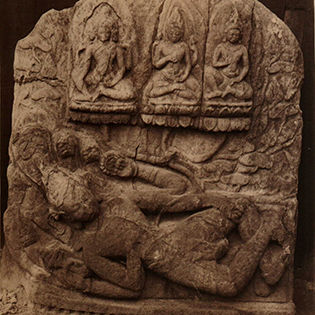Missing numbers: macro regions and the political economic geography in first millenium CE Southeast Asia
- Dates
- Wednesday 27 November 2019 (14:15-16:00)

Centre for the Study of the Middle Ages Seminar series 2019/20 - Writing and Records
- Speaker: Phacharaphorn PHANOMVAN (Oxford)
Abstract
The conception of boundaries and state in Southeast Asia during the first millennium CE have either been treated as absolute or relative by historians and archaeologists. Scholarship on statecraft has conflated urbanism with political and religious identity. This has somewhat led to challenges with establishing any constructive discussion on actual physical location and settlement extent. For most its historical identity, Southeast Asia was either viewed as an extended part of China and India or non-urbanised region with little contribution towards the history of global urban development. What does quantitative approach towards macro-regional population estimates and mapping settlement distribution reveal about political-economic boundaries? This paper, taken from the author’s thesis, takes a look at the extent of settlement distribution across different geographical niches in Mainland Southeast Asia, and their transformation over time. It contends that the absence of states and the application of both Galactic Polity and Mandala model previously applied on earlier statecraft and opens a discussion on surge of city-states like entities and its extended cultural territory within the ‘mahajanapada’ (Greater Country) landscape.
We welcome anyone who is at all interested in the research and concerns of the Centre for the Study of the Middle Ages. Each paper will be followed by a pause for refreshments, then questions. After that anyone who wishes will retire for more relaxed conversation, and then we take the speaker out for an early dinner. If you would like to join the speaker for dinner please let the convenor know (Naomi Standen, n.standen@bham.ac.uk) by the end of the Monday before the seminar.